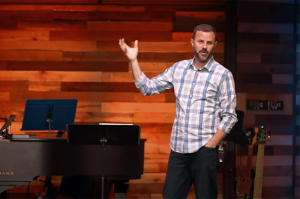Climate Change Prompts Call for 'Urgent' Action Beyond Emissions Cuts
Some of the world's leading humanitarian organizations have issued a joint statement pressing for urgent action amid changing climate conditions, saying that unless such action is taken, it will not be possible to ensure the food security of the growing world population.
But, unlike many groups, signers of the statement are not pressing industrial countries to cut carbon emissions to keep the rises in global temperature within two degrees centigrade.
Instead, the groups – which include the International Federation of the Red Cross, Oxfam, World Vision International, CARE, Caritas, Save the Children, as well as U.N. food and health agencies WFP, FAO, and the WHO – are urging the world to "urgently" move toward embracing a two-fold approach.
That approach includes investing in and supporting the development of more efficient, sustainable and resilient food production systems; as well as improving access to adequate food and nutrition by the most vulnerable and at risk populations and communities.
"Only if we succeed in making significant advances on all fronts – increasing food availability, enhancing access to food, and strengthening resilience and development – we will reduce the risk of dramatic increases in the number of hungry people among the poorest countries in the most vulnerable regions of the world," the groups expressed in their joint statement, titled "Climate Change, Food Insecurity and Hunger."
Presently, the humanitarian organizations say climate change is undermining current efforts to end the suffering of over one billion people already affected by hunger and malnutrition. Furthermore, climate change will increase the risk of hunger and malnutrition by an "unprecedented" scale within the next decades, they say.
"Climate change poses an unprecedented challenge to the aim of eradicating hunger and poverty," the groups stated.
But the groups' focus is notably different from many other groups, which have been eying the United Nations Climate Change Conference in Copenhagen next month.
From Dec. 7 to Dec. 18, national government delegations who agreed to shape an ambitious international response to climate change in 2007 will be meeting to agree on a post-2012 climate agreement that will replace the current Kyoto Protocol.
According to the United Nations Framework Convention on Climate Change, 2009 is a crucial year in the international effort to address climate change as some scientists say industrialized nations must cut emissions by 25 to 40 percent from 1990 levels by 2020 to prevent climate disasters, such as coastal flooding from rising sea levels, severe weather events, and variations in rainfall and temperatures that will affect agriculture and wipe out species of plants and animals.
Under the current deal, 37 industrial countries are required to cut emissions a total 5 percent from 1990 by 2012. Based on the current declarations from wealthy countries, the World Wildlife Fund for Nature estimates the total emissions cut will amount to 10 percent by 2020.
Though many have been emphasizing the need to cut emissions, the world – especially the United States – remains divided over the causes of the global warming and even whether the earth is warming at all.
Over the past year, for example, the Pew Research Center for the People & the Press found that the percentage of Americans who say there is solid evidence that the earth is warming had dropped sharply – from 71 to 57 percent.
And while 56 percent of global warming believers say humans are to blame for climate change, 34 percent would argue that global warming is caused naturally by changes such as alternations in the Earth's orbit and solar energy and solar wind output.
"The decline in the belief in solid evidence of global warming has come across the political spectrum, but has been particularly pronounced among independents," reported the Pew Research Center.
Despite the growing public skepticism about global warming, the Pew survey still found more support than opposition for a policy to set limits on carbon emissions. According to Pew, half of Americans favor setting limits on carbon emissions and making companies pay for their emissions, even if this may lead to higher energy prices. Thirty-nine percent, meanwhile, oppose imposing limits on carbon emissions under these circumstances.
Similar sentiments exist within the Christian community, which largely agrees that people have a responsibility to care for God's creation but are divided over the existence and the cause of global warming.
According to Pew, 44 percent of White non-Hispanic evangelicals say the earth is warming.



























